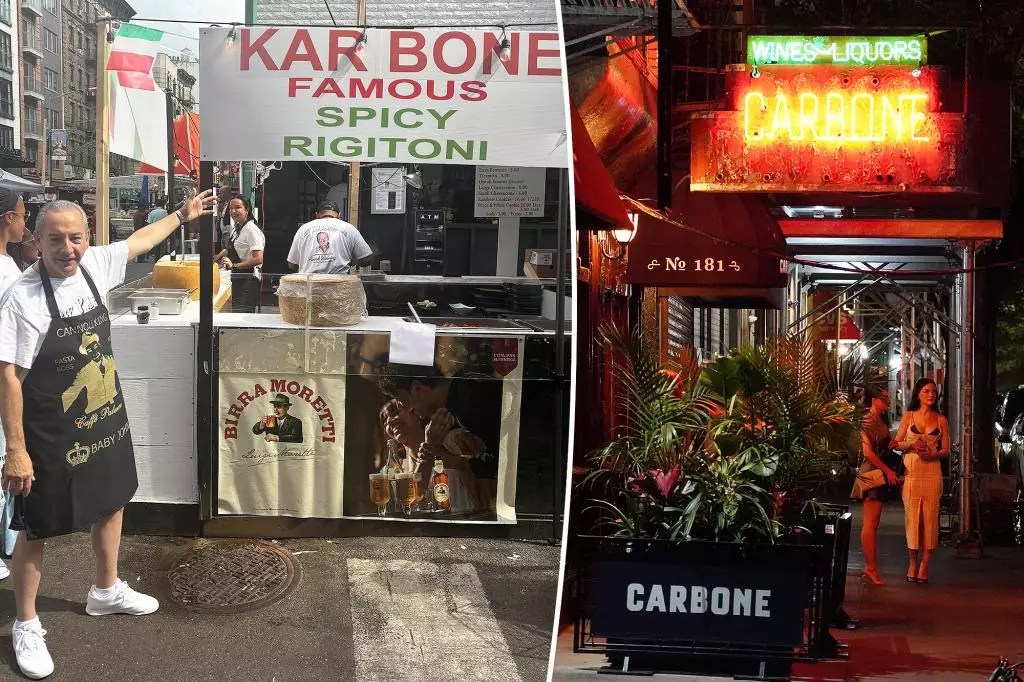In a vibrant culinary scene where tradition meets innovation, some restaurateurs are opting for unconventional marketing strategies to draw attention. Such is the case with John “Baby John” DeLutro, a Little Italy native and proprietor of the popular Caffe Palermo bakery and Baby John’s Pizzeria. Recently, DeLutro has made waves by emulating one of New York City’s hottest dining establishments, Carbone, renowned for its A-list clientele and signature spicy rigatoni. This move, blending homage with rivalry, taps into both nostalgia and a little bit of cheekiness.
Carbone, a Greenwich Village gem recognized for its chic atmosphere and influential visitors, has set a high bar in the culinary world. In response to its soaring fame, DeLutro has tried to seize a slice of the attention pie during the annual Feast of San Gennaro. His stall boldly advertises “KAR BONE FAMOUS SPICY RIGITONI,” a playful nod to Carbone’s renowned dish but with a twist in spelling. This audacious maneuver raises questions about the boundaries of intellectual property and culinary branding.
Though DeLutro claims he is on solid legal ground, he seems to toe a fine line in terms of ethics and competition. He argues that since a rival previously marketed his cannoli with a deliberate misspelling, he should be allowed the same freedom with his rigatoni. This reasoning, while entertaining, speaks to a broader conversation about how far one can go in mimicking popular brands without crossing legal thresholds.
DeLutro’s stalls have included a promise of superior craftsmanship, where he confidently asserts, “I think I make a better spicy rigatoni than [Carbone].” His approach, steeped in bravado and local pride, highlights a critical aspect of the culinary world: competition is often just a stone’s throw away from camaraderie. His intentions appear rooted in a desire to connect with tourists who might recognize the famous name.
The Feast of San Gennaro, an illustrious event that has spanned 98 years, draws thousands to Mulberry Street every year, where culture and culinary delights collide. DeLutro wishes to enhance his stall’s visibility and traffic during this vibrant festival. However, while playful rivalry can generate buzz, it can also risk alienating those associated with the original brand.
With a wink and a nod, John DeLutro’s strategy serves as both a clever marketing tactic and a reflection of deeper concerns within the food industry. In a time where branding can make or break a business, this unconventional imitation finds a balance between parody and genuine competition. As the festival progresses, it will be intriguing to see whether this chef’s audacious gamble pays off — or if he finds himself untangling a web of legal and reputational repercussions. In the world of cuisine, as in life, the quest for recognition may sometimes blur the line between inspiration and imitation.


Leave a Reply